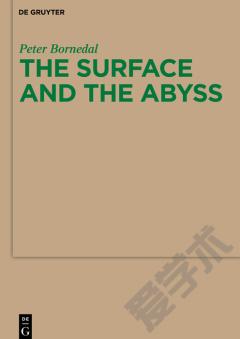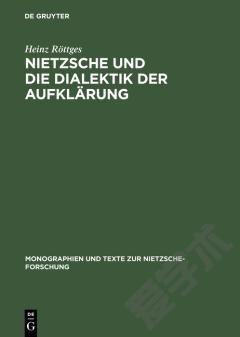The Surface And The Abyss —— Nietzsche as Philosopher of Mind and Knowledge
----- 表面与深渊:作为哲学家尼采的心灵与知识
Peter Bornedal provides an interpretation of Nietzsche′s philosophy as a whole in the context of 19th century philosophy of mind and cognition. The study explains Nietzsche′s notion of truth; his epistemology; his notions of the split and fragmented subject, of master, slave, and priest; furthermore, it offers a new interpretation of the enigmatic "eternal recurrence". It also suggests how important aspects of Nietzsche′s thinking can be read as a sophisticated critique of ideology. From studies in Nietzsche′s work as a whole, not least in his so-called Nachgelassene Fragmente, the book reconstructs aspects of Nietzsche′s thinking that have largely been under-described in especially the Anglo-Saxon Nietzsche-reception. The study makes the case that Nietzsche in his epistemology, his psychology, and his cognitive theory is responding to several scientific discoveries occuring during the 19th century.
{{comment.content}}








 京公网安备 11010802027623号
京公网安备 11010802027623号